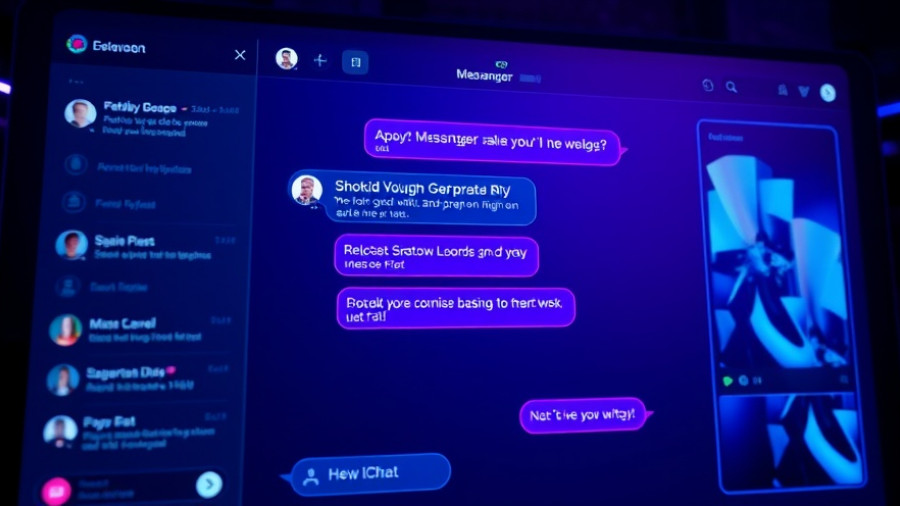
Meta Takes a Big Step: Messenger Desktop Apps Are Shutting Down
In the latest on tech trends, Meta has announced a significant decision that could affect millions of users: the shutdown of its standalone Messenger apps for Windows and Mac. Set to take effect on December 15, 2025, this transition means desktop users will no longer have access to a dedicated Messenger application, forcing them to migrate to the web version. While at first glance, this move may seem trivial—after all, users can still access messages through Facebook’s website—its implications ripple wider than you might think.
Why Now? Understanding the Shift
Meta's rationale for this decision aligns with its overarching strategy to streamline its services. The company aims to consolidate user experiences and reduce development costs by moving away from dedicated desktop applications. Launched amidst the COVID-19 pandemic back in 2020, the Messenger desktop app was positioned as a means to enhance social connection during a time of increased isolation. However, with the decline in demand for video chatting and a growing preference for browser-based tools, it's clear that Messenger's desktop prospects have waned.
Impact on Users: What Does This Mean for You?
For regular users of the Messenger app, the shutdown is likely to stir mixed feelings. Your chat history is protected—you’ll still find most of your conversations when you log into Facebook’s website. However, the convenience of a dedicated app, known for its smoother notifications and better multitasking capabilities, will be sorely missed by power users. Productivity-focused individuals who relied on the desktop experience will now face the challenge of adapting to a web-based format.
Alternatives: Where Does This Leave Users?
Meta has laid out alternatives for desktop users, suggesting that they can either switch to the Facebook desktop app or continue using Facebook.com for their messaging needs. The company emphasizes the importance of securing chat histories via end-to-end encryption and making sure that secure storage settings are enabled before migrating. Although these steps are reassuring, they seem to indicate a more significant trend—one that may inadvertently alienate users who thrive on a dedicated app experience.
Potential Competitors Emerge
The retreat from native desktop applications could present opportunities for competitors. As Meta withdraws from this space, platforms like Discord and Slack may seize the moment to attract users looking for robust desktop messaging solutions. The transition away from dedicated apps is not just a shift for Meta, but a chance for other players in the market to showcase their offerings and cater to an audience that values native software.
Looking into the Future: A Trend or a Necessity?
This move could indicate a broader industry trend away from standalone applications. As technology evolves, users are increasingly expected to adjust to integrated web platforms rather than rely on discrete applications. With companies like Meta pushing this trend forward, only time will tell how users will adapt.
Final Thoughts: What Should You Do?
As the December deadline approaches, it's essential to prepare for the changes ahead. Users might feel uncertain about leaving their established app behind, but adapting to the browser-based experience could also provide new opportunities to explore integrated features. If you’re a dedicated Messenger user, now is the time to ensure your chat histories are secure, explore the alternatives suggested by Meta, and potentially even consider what other platforms might offer.
In the tech landscape, as changes occur swiftly, one thing remains constant: the need for users to stay informed and adaptive. Prepare for a future where messaging may look a bit different—both on your desktop and beyond.
 Add Row
Add Row  Add
Add 




Write A Comment